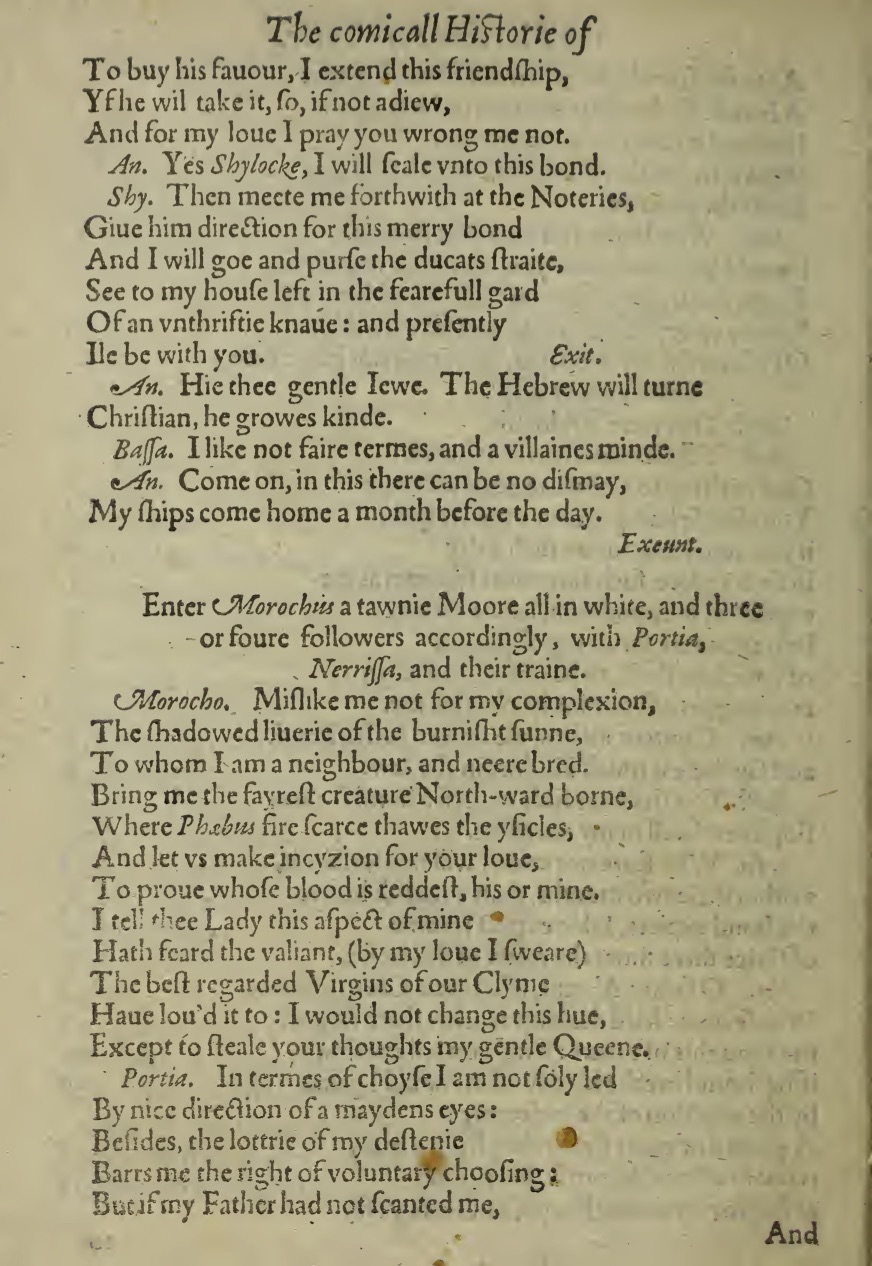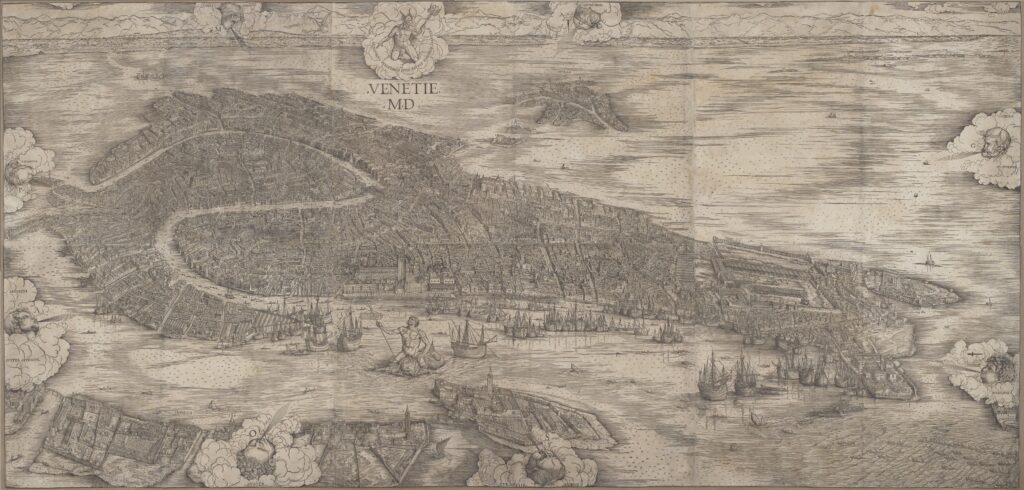- Antonio enters blindly into a covenant with Shylock because he fails to imagine that the revenge the usurer seeks isn't about money.
- Shylock's bond with Antonio is "merry" because it connects Venice with Belmont and allows the love between two couples flourish (Portia & Bassanio and Jessica & Lorenzo). It also echos the connection between money and fertility.
- Shylock lives in the Jewish ghetto of Venice. In "View of Venice," the Jewish ghetto can be seen at the far end of the island. The ghetto featured tight living conditions, in stark contrast to other spacious parts of the city such as St. Mark's Square, which can be seen at the forefront of the island.
- The anti-semitism in this line also points to the hypocrisy of Antonio and Bassanio. While Antonio and Bassanio consider themselves morally superior to Shylock, they are incredibly rude to him, admitting earlier in the play to spitting and demeaning Shylock. Yet, Shakespeare points out that Antonio and Bassanio associate Christianity with goodness, despite their awful behavior. The setting of Venice could very easily mirror that of London, reflecting the racism and anti-semitism of Shakespeare's audiences. It is possible that in highlighting this hypocrisy Shakespeare hoped to enlighten his audience to their own hypocrisy (Galery 30-31).
- A pun on "fair." Fair can either mean pale or unprejudiced.
- The white clothing is meant to contrast the Prince of Morocco's complexion. Race, even in a stage direction, takes center stage.
- This is the only time the iambic pentameter is broken on this page. The line is one syllable short, with nine syllables. The Prince is rushing in to his encounter with Portia and begins the interaction off-kilter. This alludes to a racial inferiority complex within the Prince. This introduction coupled with his own racial resentment "indicates that he has been conditioned by experience to anticipate mistreatment by white society" (Harrington 54).
- Morocco creates an association between Northern locations and coldness with this imagery of icicles. This is connection associates whiteness with a cold-shoulder.
- Portia name signifies her position as an intermediary between Venice and Belmont, a "port" which bridges the sea and the citadel. Portia is both beautiful and rich, therefore valuable and respected in Venice and Belmont. She embodies desirable bonds with both genders. (Burckhardt, 234)

